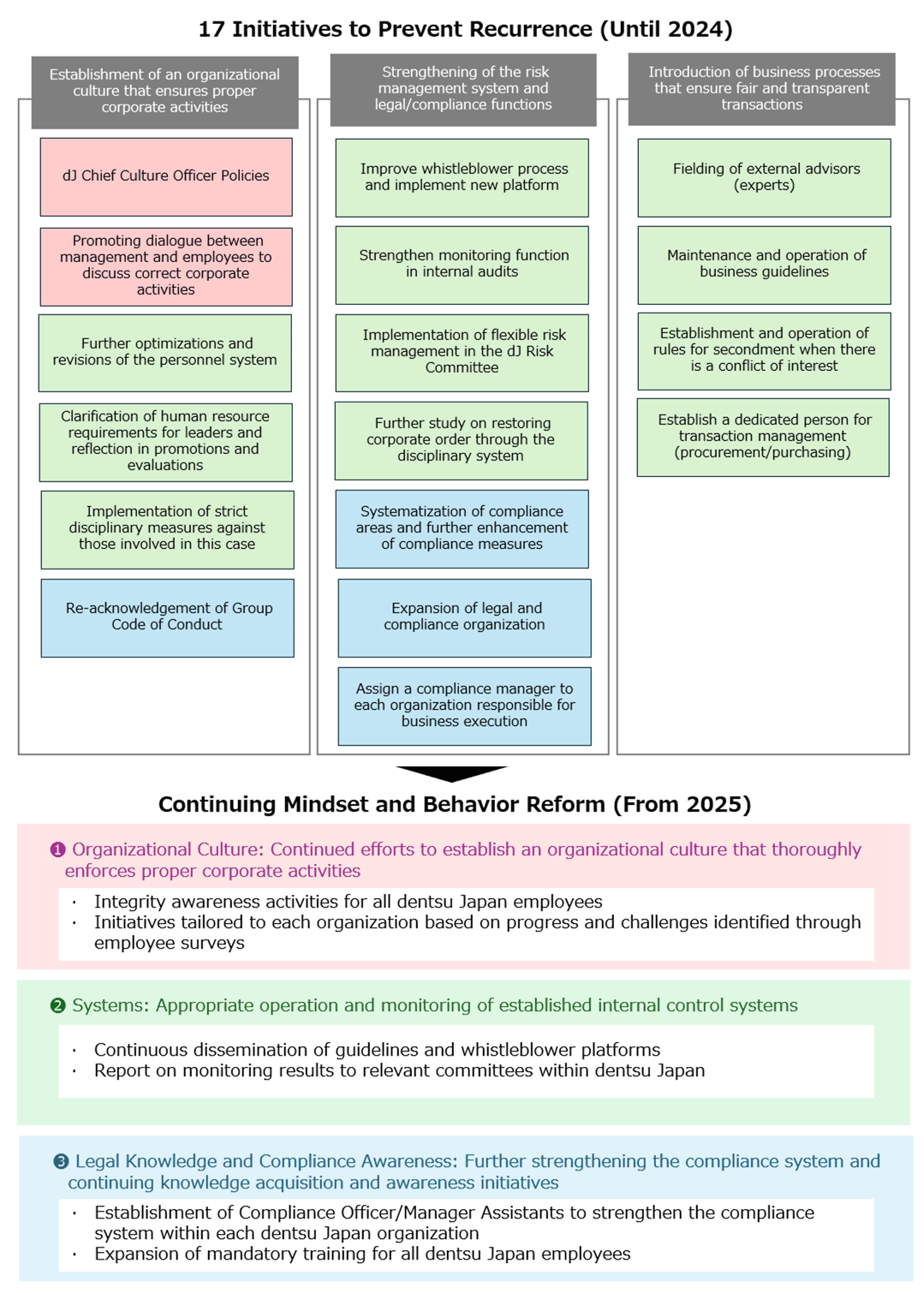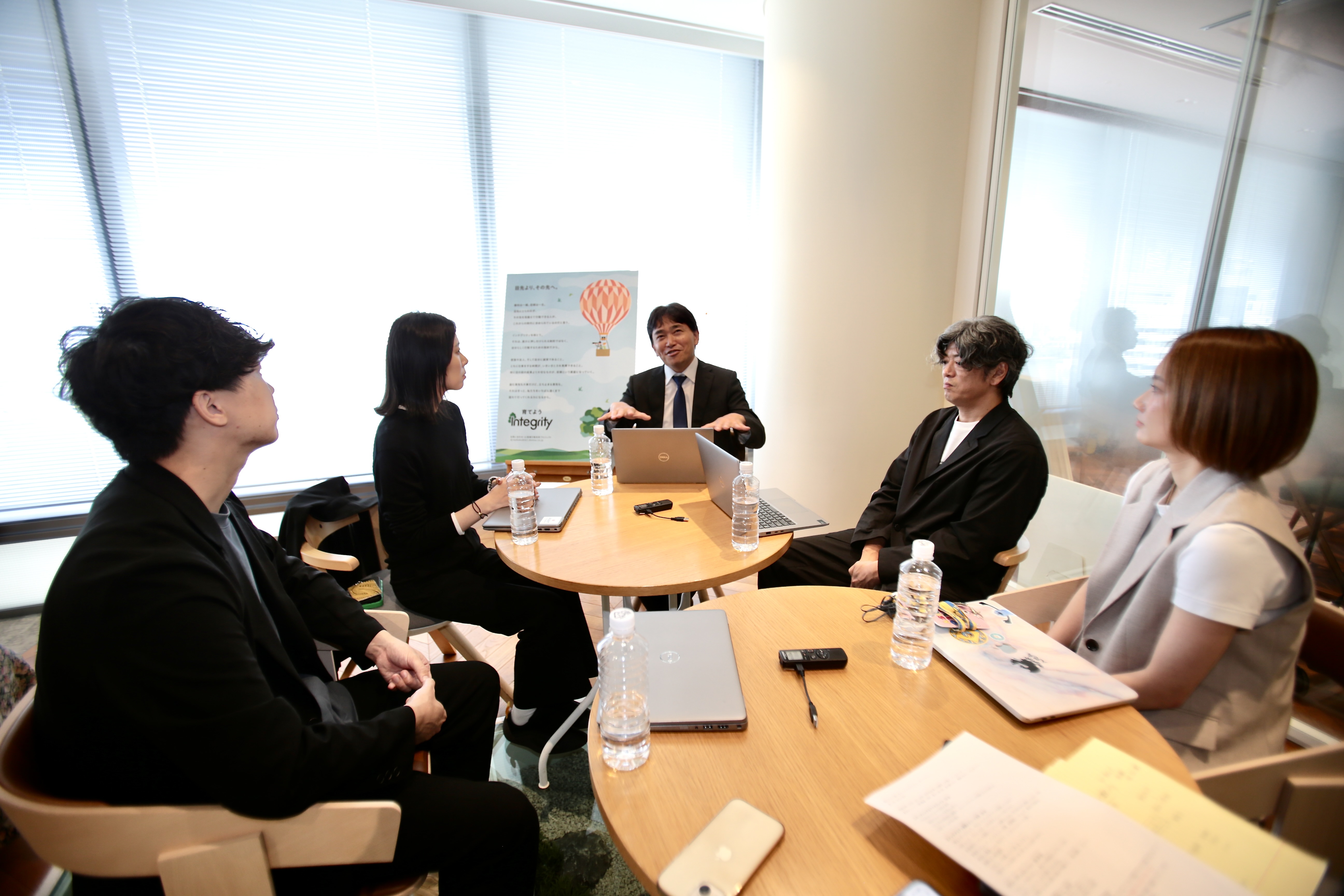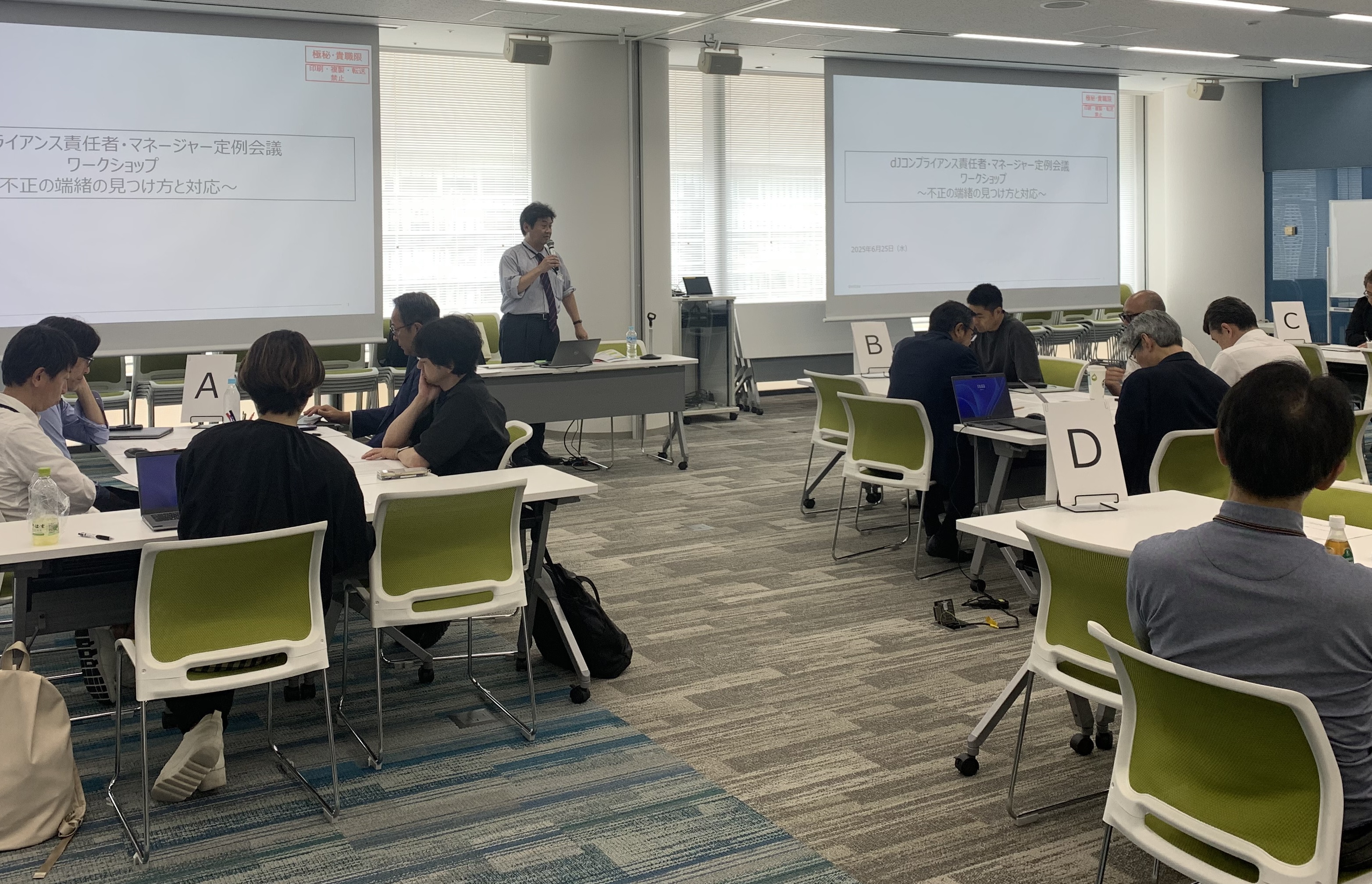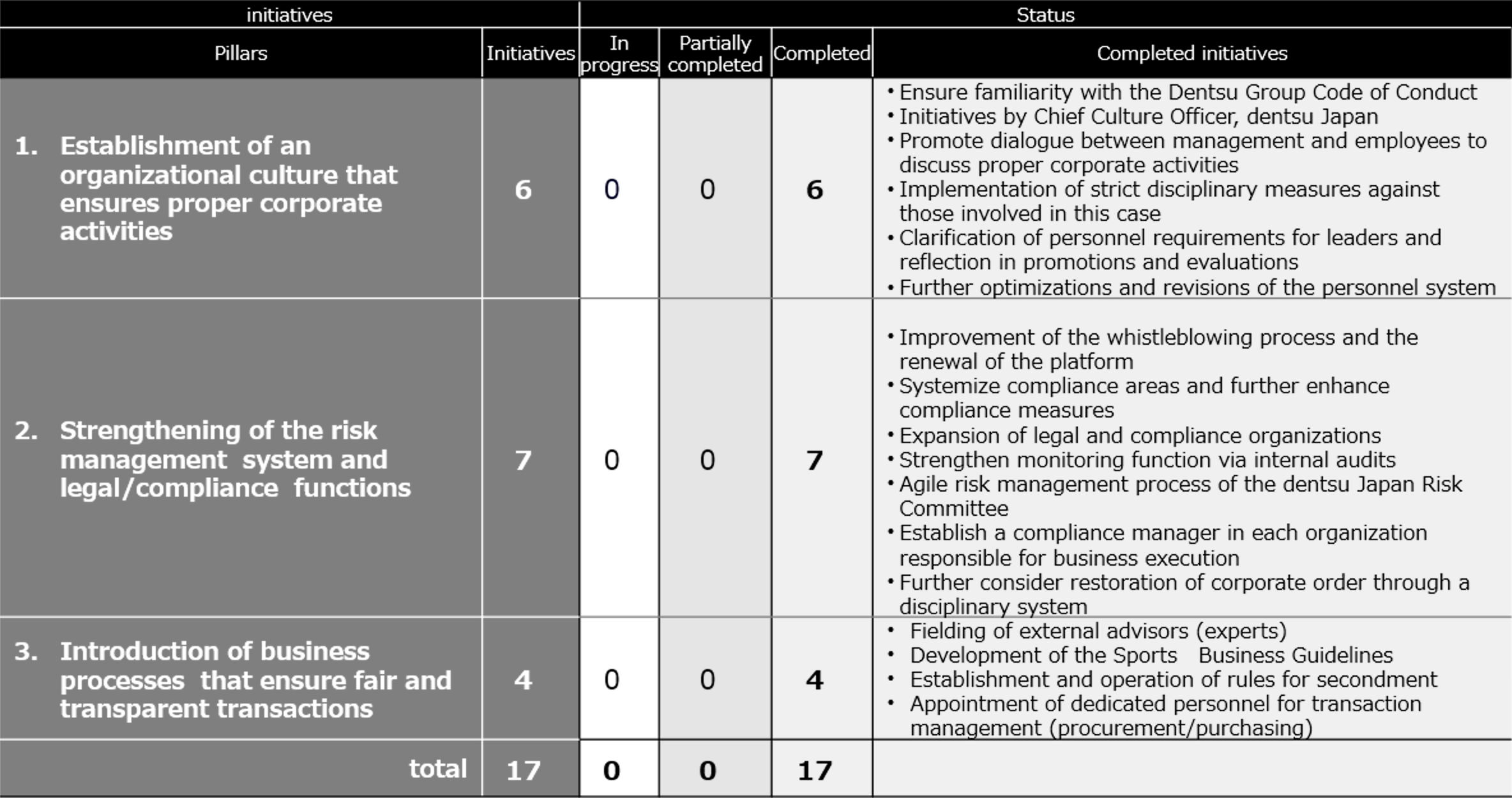Recurrence Prevention Initiatives (mindset and behavior reform)
Regarding the case related to Tokyo 2020 Olympic and Paralympic Games, the Group has established the dentsu Japan Reform Committee on May 15, 2023 and has been working to reform mindset and behavior. And, as of December 18, 2024, all 17 initiatives to prevent recurrence that have been promoted under the dentsu Japan Reform Committee have been completed.
From January 2025, dentsu is promoting Mindset and Behavior Reform Project to develop our previous efforts with the aim of establishing an organizational culture that prioritizes integrity and ensuring a high level of compliance.
Policy on Recurrence Prevention Mindset and Behavior Reform
dentsu Japan Mindset and Behavior Reform Project
Employee survey
The monitoring evaluation by the outside advisors
Efforts of Mindset and Behavior Reform by 2024
Reference: Investigation Report by the Investigation and Review Committee
Reference: ESG Briefing
Reference: News Releases
Policy on Recurrence Prevention
The policies on recurrence prevention that has been in place since the launch of the dentsu Japan Reform Committee are as follows.
Overall Policy: We will enhance our sense of responsibility and transparency toward society, and clarify the rules and processes that must be followed.
- (i)Establish a system to reflect the knowledge gained from analyzing, considering and reflecting past cases in our business operations by reviewing business processes to ensure fair transactions, formulating and revising guidelines for the sports domain and public sector, etc., where the aforementioned case originated, introducing information management measures to prevent conflicts of interest with the organizations to which employees are seconded, etc.
- (ii)Reexamine established policies and internal reporting systems periodically and improve the effectiveness of internal controls. In particular, strengthen the checking and monitoring functions by establishing an executive meeting body and a person in charge of governance to promote compliance for each project per organizational unit.
- (iii)Once again conduct entire dentsu Japan- compliance education, involving everyone from management to those in charge of practical operations, in order to acquire knowledge and raise compliance awareness. Additionally, ensure the enrichment of the compliance initiatives and continuity of efforts by implementing Antimonopoly Act compliance training, establishing a consultation service, and expanding the organization in charge of compliance within dentsu Japan.
- (iv)Ensure that all employees are familiar with the Dentsu Group Code of Conduct in order to define and settle an appropriate corporate culture and strengthen entire dentsu Japan activities to foster such a corporate culture. Additionally, review the personnel system to ensure governance is functioning appropriately.
dentsu Japan Mindset and Behavior Reform Project
From January 2025, the new structure will be led by COO, dentsu Japan, with Chief Branding/Culture Officer, dentsu Japan as sub-leader, and the department in charge of dentsu Corporate One Inc., which supports the business sites of each dentsu Japan company, as a member. Dentsu Japan Mindset and Behavior Reform Project to promote an organizational culture that prioritizes integrity and ensures a high level of compliance.
dentsu Japan's initiative for Mindset and Behavior Reform was triggered by the case related to Tokyo 2020 Olympic and Paralympic Games. However, it is positioned not only to prevent recurrence of such cases but also as a project undertaken by the entire dentsu Japan to solidify the foundation for sound corporate activities that will enable dentsu Japan to grow further.
Project Promotion structure
| Member | Responsibility | |
|---|---|---|
| Leader | Yoshimasa Watahiki COO, dentsu Japan | Drafting the initiatives, Reporting the progress to the committee |
| Sub-leader | Yuko Yoshiba Chief Branding/Culture Officer, dentsu Japan | Drafting the initiatives, Reporting the progress to the committee, Operating the committee |
| Support | Tadashi Nagae Global Corporate Secretary & Deputy Global General Counsel, dentsu | Promotion Support |
| Member | Dentsu Corporate One Inc. Legal Office Compliance Office Branding Office Business/Management Planning Office | Promotion of initiatives collaboration with the front line |
| Outside Advisor | Toshihiko Itami, Attorney-at-Law | Monitoring Advisory |
| Outside Advisor | Genta Yoshino, Attorney-at-Law | Monitoring Advisory |
| Outside Advisor | Yasuo Daito, Attorney-at-Law | Monitoring Advisory |
● Initiatives for Fiscal Year 2025
Leveraging the results of the 17 initiatives completed by the end of the 2024 fiscal year, we are continuously implementing initiatives for Mindset and Behavior Reform across three themes: ❶ Organizational Culture, ❷ Systems, and ❸ Legal Knowledge and Compliance Awareness.

● Key Initiatives for Fiscal Year 2025
・Dialogue between management and employees to establish an organizational culture prioritizing integrity
Leader of the Mindset and Behavior Reform Project regularly hold roundtable discussions with employees across dentsu Japan companies, focusing on themes such as the importance of integrity in business operations. The content of these discussions is distributed to all dentsu Japan employees and utilized as initiatives to deepen their understanding of integrity.

・Development and utilization of tools to foster employee understanding of integrity
To support concerns related to integrity arising in business operations, a tool (Integrity Hint Book) has been created with the cooperation of executives and employees from all dentsu Japan companies. This tool compiles guidance and approaches for reference when facing uncertainties or anxieties in business activities. It has been shared with all dentsu Japan employees, and it is used in each organization.
・Workshops for Dentsu Inc. compliance managers, and their assistants
Workshops are held for Dentsu Inc.compliance managers, and their assistants stationed across each organization. With the support of external experts, these workshops focus on learning how to handle compliance issues, thereby enhancing compliance-related knowledge. We plan to expand the scope of this initiative to include compliance officers, managers, and their assistants at dentsu Japan companies other than Dentsu Inc. in the future.

・Re-acknowledgement of the Dentsu Group Code of Conduct
We continued training since last fiscal year where all employees, including those outside Japan, reviewed the content of the “Dentsu Group Code of Conduct” and agreed to it. This Code is required to be understood and practiced by everyone belonging to dentsu.
Employee survey(the first survey was conducted in November 2023, the second was in February 2024, the third was in May 2024, and the fourth was in November 2024)
The first survey targeting all dentsu Japan employees was conducted in November 2023, and the second and the third survey were conducted in February and in May 2024 by targeting approximately 5,000 employees through a sample survey, the fourth survey was conducted in November 2024 by targeting all dentsu Japan employees.
The overviews of the results of the surveys;
- Overall, scores increased steadily from the first survey to the fourth, including awareness and understanding of the mindset and behavior reform. In particular, the items that showed the greatest increase were “reference to integrity (recognition and understanding)”, “specific understanding of integrity”, and “establishment of organizational culture”
- “Balancing integrity and results” and other items have remained largely unchanged since the first survey, and further support is needed to ensure that business sites do not hesitate when prioritizing integrity in their work
- Continued efforts are needed to establish an organizational culture that prioritizes integrity
Monitoring evaluation by the outside advisors
The monitoring evaluation of the Mindset and Behavior Reform by the three outside members (currently the outside advisors) is as follows (as of August 14, 2025)
●Mr. Itami
As in the previous year, dentsu Japan is working to spread and deepen understanding of integrity through integrity sessions and other initiatives. In addition, dentsu Japan is highly regarded for its attitude of constantly reviewing the contents of the dentsu Japan Mindset and Behavior Reform Project and vigorously pushing forward with its implementation, including the introduction of new dialogue sessions with clients to build relationships based on integrity, and I hope that dentsu Japan will continue to monitor the degree of penetration and move forward with its efforts. Furthermore, while understanding of the importance of integrity in business operations has progressed, it is now time to shift the perspective from the traditional view of prioritizing integrity over interests to recognizing integrity as one of the foundational pillars of dentsu's corporate philosophy, NORTHSTAR, and to pose questions from this new perspective.
●Mr. Yoshino
It is evident that individuals and teams are considering and practicing integrity in their daily work processes, and that these values have become deeply ingrained as shared principles. Asking simple questions about the events, issues, and tasks at hand is an important first step toward practicing integrity. I hope that everyone will share their questions, discuss them, and strive to maintain and develop a workplace environment that enables better decision-making, so that opportunities for practicing integrity are not lost due to various factors, such as hesitation to speak up or not wanting to cause trouble for others.
●Mr. Daito
I would like to express my respect for dentsu Japan's ongoing efforts to promote integrity throughout the organization. Specific initiatives include 1) roundtable discussions where employees from specific departments share their efforts and concerns, 2) feedback from clients, and 3) discussions in workshops. These initiatives are not limited to abstract concepts but are concrete efforts to promote integrity from various perspectives, and I believe they are beginning to show results. I hope these activities will continue.
Reference to the monitoring evaluation
Mindset and Behavior Reform by 2024
dentsu Japan Reform Committee Members
| Member | Responsibility | |
|---|---|---|
| Chair | Hiroshi Igarashi Representative Executive Officer, President & Global CEO, dentsu | Project lead, Reporting to the Board of Directors |
| Vice-chair | Arinobu Soga Representative Executive Officer, Executive Vice President, Global Chief Governance Officer & Global Chief Financial Officer, dentsu | Assisting the Chair, Implementing the reform |
| Outside Member | Toshihiko Itami, Attorney-at-Law | Advisory |
| Outside Member | Genta Yoshino, Attorney-at-Law | Advisory |
| Outside Member | Yasuo Daito, Attorney-at-Law | Advisory |
| Member | Tadashi Nagae Global Corporate Secretary & Deputy Global General Counsel, dentsu | Implementing the reform |
| Leader | Takeshi Sano CEO, dentsu Japan | Drafting the initiatives, Reporting the progress to the committee |
| Leader/ Secretariat Head | Yoshimasa Watahiki COO, dentsu Japan | Drafting the initiatives, Reporting the progress to the committee, Operating the committee |
(as of January 1, 2024)
Progress of the recurrence prevention initiatives (Completed by December 2024)

(as of December 18, 2024)
Reference to the previous status of progress.
Reference: Investigation Report by the Investigation and Review Committee
The details of the Investigation Report by the Investigation and Review Committee consisting of three outside experts are as follows.
Investigation Report by the Investigation and Review Committee
Reference: ESG Briefing
Latest Presentation and Conference Materials
- ESG Briefing 2024 Presentation(3.16 MB)
- Questions and Answers of ESG Briefing 2024 (231 KB)
- ESG Briefing 2024 Recorded Video
Reference: News Releases
-
2023.07.21
Implementing the “Mindset and Behavior Reform” Promoted by the dentsu Japan Reform Committee
-
2023.06.09
Notice concerning the receipt of the Investigation Report by the Investigation and Review Committee and recurrence prevention efforts
-
2023.02.28
Establishment of the Investigation and Review Committee of Outside Experts
-
2023.02.14
Establishment of a Special Committee of Independent Outside Directors

